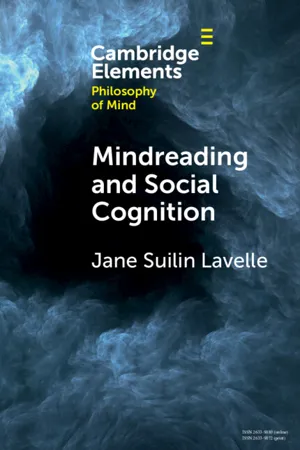Mindreading and Social Cognition
About this book
The cognitive ability to think about other people's psychological states is known as `mindreading'. This Element critiques assumptions that have been formative in shaping philosophical theories of mindreading: that mindreading is ubiquitous, underpinning the vast majority of our social interactions; and that its primary goal is to provide predictions and explanations of other people's behaviour. It begins with an overview of key positions and empirical literature in the debate. It then introduces and motivates the pluralist turn in this literature, which challenges the core assumptions of the traditional views. The second part of the Element uses case studies to further motivate the pluralist framework, and to advocate the pluralist approach as the best way to progress our understanding of social cognitive phenomena.
Frequently asked questions
- Essential is ideal for learners and professionals who enjoy exploring a wide range of subjects. Access the Essential Library with 800,000+ trusted titles and best-sellers across business, personal growth, and the humanities. Includes unlimited reading time and Standard Read Aloud voice.
- Complete: Perfect for advanced learners and researchers needing full, unrestricted access. Unlock 1.4M+ books across hundreds of subjects, including academic and specialized titles. The Complete Plan also includes advanced features like Premium Read Aloud and Research Assistant.
Please note we cannot support devices running on iOS 13 and Android 7 or earlier. Learn more about using the app.
Information
Table of contents
- Cover
- Title Page
- Copyright Page
- Mindreading and Social Cognition
